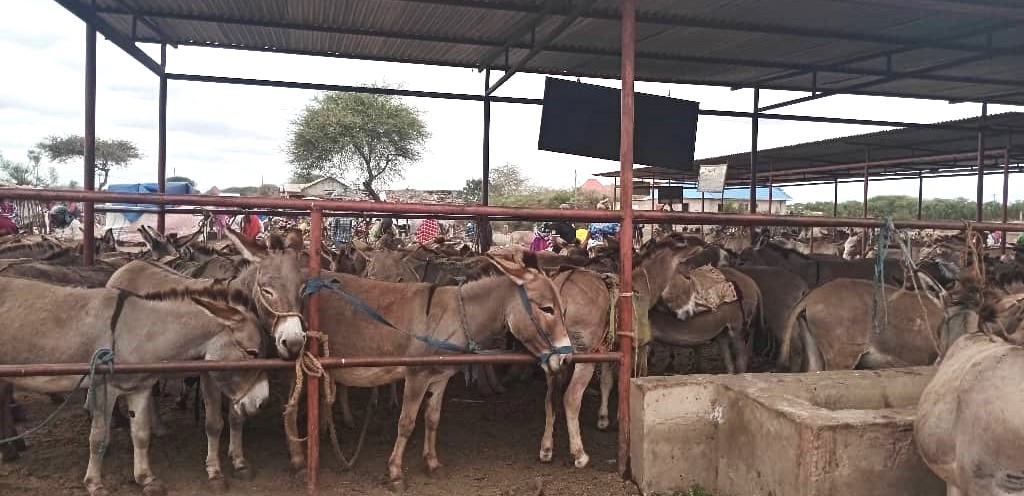Arusha is now conducting weekly veterinary clinics for the battered donkeys in the region.
The exercise, which is really getting a kick, takes place during the periodical ward and village commodity auction market days, where the animals can be found in plenty.
The Arusha Society for the Protection of Animals (ASPA), in association with Brooke East Africa of Nairobi, have launched weekly health clinic outreach programs to provide veterinary services to donkeys in various parts of the Northern Zone.
The clinical services are usually conducted at the weekly open air market auctions, where more than 2000 donkeys gather at the venues to either deliver or pick-up merchandise goods.
“We usually visit at least seven market venues in a month and at each local auction we manage to treat around 500 donkeys,” said Albert Mbwambo the Development Officer at Arusha Society for the Protection of Animals (ASPA).
Mbwambo pointed out that most donkeys have been found to suffer bruises due to friction as the tons of goods loaded onto their sides and backs, rub against the animals’ skins during movement, wounds resulting from frequent severe beatings and intestinal worms.
“We provide all the necessary care and medication, free of charge,” said the ASPA official.
The association has also constructed sheltered resting stables for the donkeys protecting the animals from weather elements such as strong heat, cold and rain.
Mbwambo was speaking during one of such free veterinary outreach programs at the Mirongoine auction market place (Gulio) in the Oljoro Ward of Arusha Rural District.

One of the veterinary officers working at the venue, pointed out that donkeys are the most mistreated domestic animals in Tanzania, usually overworked, overburdened, beaten and underfed.
“They carry all sorts of cargo, from market merchandise, firewood, coal and farm harvests, in addition to pulling carts, water bowsers and even dragging farm ploughs,” added Diana Msemo, a veterinary officer working with ASPA.
Msemo explained that most donkeys in Tanzania suffer from tetanus infections, mostly from gashes of wounds due to beating, Colic due to hunger and malnutrition, because the animals are never fed forcing them to chew all sorts of garbage that lead to stomach ailments.
The local donkeys also suffer from rabies because they are usually bitten by dogs.
Awareness training among local villagers conducted by ASPA have also helped to reduce cases of animal cruelty imposed on donkeys by humans.
ASPA works in association with Brooke East Africa, their partner in advocating for donkeys’ welfare, especially addressing issues of smuggling and trafficking of the animals.

